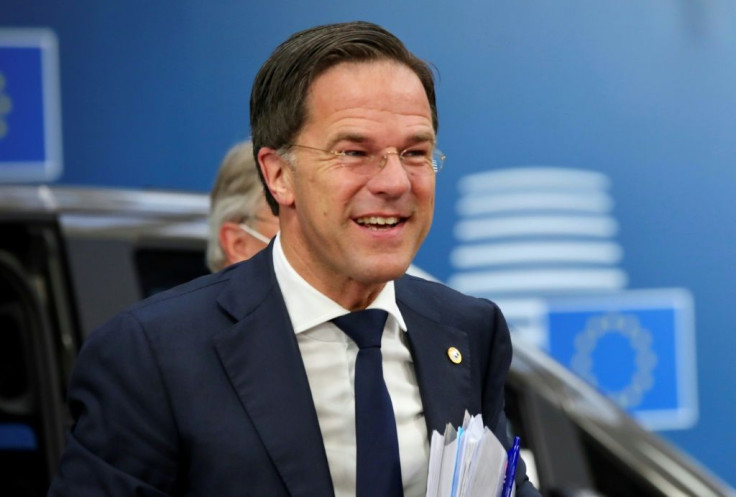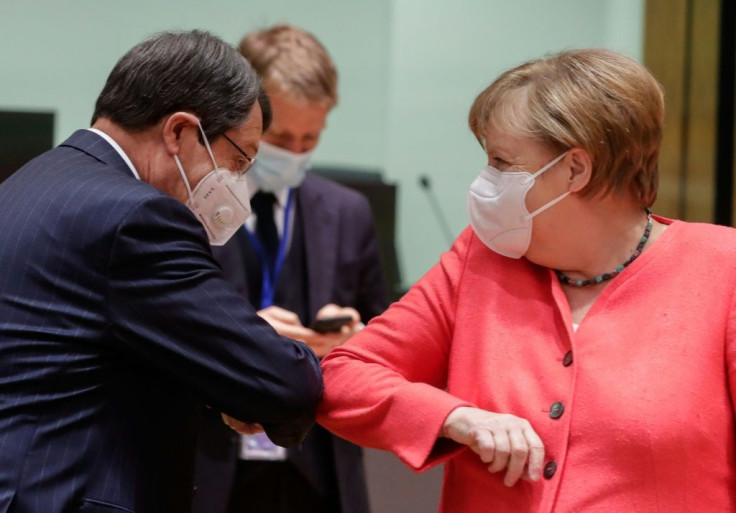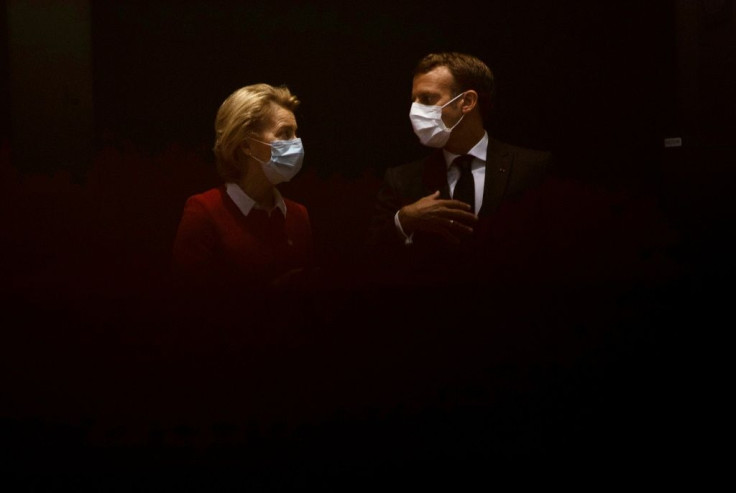Deadlocked EU Summit Heads Into Third Day
An acrimonious EU summit headed into a third day Sunday as leaders remained deadlocked over a huge post-coronavirus economic recovery plan, unable to overcome fierce resistance from the Netherlands and its "frugal" allies.
European Council president Charles Michel was expected to propose another plan to the 27 leaders at noon (1000 GMT) after his initial blueprints for a 750-billion-euro ($850 billion) package were refused by the richer northern member states.

"We're in a stalemate, it's very complicated, more complicated than expected," Italian Prime Minister Giuseppe Conte said after long hours of wrangling on day two of the summit in Brussels.
An EU official said the leaders would reconvene on Sunday for day three, with Michel expected to hold meetings through the night with key players Germany, France and the Netherlands.
Europe is in the throes of a massive recession and leaders are trying to approve a plan that could quickly send EU cash to countries that were hit the hardest, but lacked the means to stimulate their economies.

But Dutch Prime Minister Mark Rutte has insisted member states retain final approval of any funding -- an effective veto -- for recipients.
He says EU oversight is necessary to oblige countries like Spain and Italy to reform their economies to make them better able to cope with future crises.

In a concession to Rutte's demands, Michel's latest plan includes a "super emergency brake" that gives any country a three-day window to trigger a review by all member states of another's spending plans.
An official from a non-frugal state insisted that this does not amount to a right of veto, but admitted that it remains to be seen whether countries such as Spain and Italy will accept the compromise.
Meanwhile, a European source said the frugal countries were still not happy and were seeking more cuts, but that painstaking progress was being made.

"We went from a near stalemate yesterday to a calm, dense and intense working day today," said an EU diplomat.
Amid the furious negotiating, at one point, the leaders of some smaller countries -- Belgium, Estonia, Luxembourg and Malta -- left the venue to enjoy drinks and chips on a sunny square.
Finally, Michel called the leaders back together for dinner where the leaders agreed to stay in Brussels for a third day.

Michel's latest proposal would keep the total recovery budget at 750 million euros, but shift the balance slightly from grants -- down from 500 million to 450 million -- to loans, which rise from 250 million to 300 million, according to a document seen by AFP.
While Rutte was alone in his hard line on the need for unanimous approval of grants, Austria also raised objections.
"The ratio of grants versus loans simply has to be different," Chancellor Sebastian Kurz told reporters.
As a further sweetener for Austria, the Netherlands and the other "frugals" -- Sweden and Denmark -- Michel's new plan also hiked the rebates they get on their EU contributions.
"That's not quite enough for us. We want a bit more, but the direction is a good one," Kurz said.
But more problems lie ahead. A European diplomat told AFP that the frugals would not be content with reducing the amount of grants to 450 billion euros and would push for more to become loans, subject to repayment. "They wanted zero grants," he said.
"No political pre-conditions can be accepted," said Zoltan Kovacs, a spokesman for Orban.
And the rescue package is in addition to the planned seven-year EU budget -- worth more than one trillion euros -- that the leaders must also discuss if and when they agree the rescue package.
© Copyright AFP 2024. All rights reserved.





















